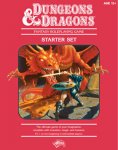Well, I wouldn't say it's disingenous. I get the sense from Banana's posts that he's actually using the 'single campaign' clause you agree with, but for each campaign he's in.
That is, he may not be concerned with canon as it exists separately from any individual game, but rather would like for the canon to be used in each game to be well defined and consistent within that game. The questions of setting changes and canonosity aside from that seem from my reading to be of a distant second concern, if that.
Or maybe I'm just projecting my own preferences onto him.
That is, he may not be concerned with canon as it exists separately from any individual game, but rather would like for the canon to be used in each game to be well defined and consistent within that game. The questions of setting changes and canonosity aside from that seem from my reading to be of a distant second concern, if that.
Or maybe I'm just projecting my own preferences onto him.



